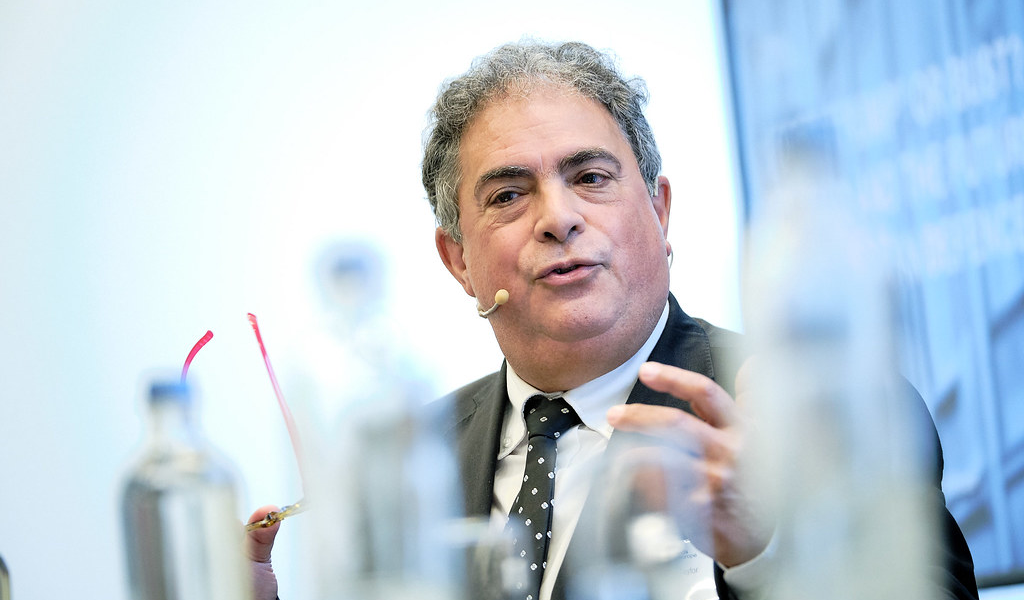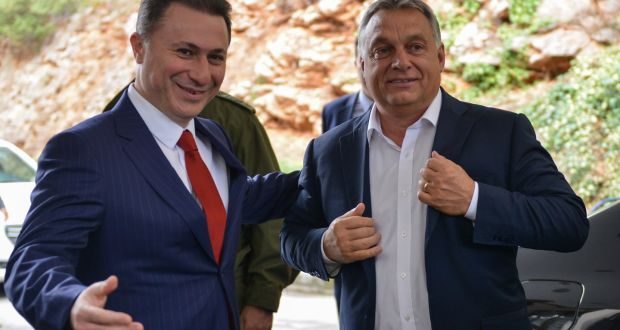Paul Taylor, Senior Fellow of Friends of Europe.
The United States should wholeheartedly embrace EU initiatives to strengthen European and NATO defence capabilities and offer joint incentives for transatlantic industrial collaboration instead of niggling over the rules of the EU’s defence fund (EDF), a new report urges.
The study by journalist and researcher Paul Taylor for the Brussels think-tank Friends of Europe on transatlantic defence cooperation in the Trump era describes the transatlantic defence market as a “minefield of opportunity”.
Political uncertainty over the continued US commitment to NATO amid widening diplomatic and trade differences, persistent regulatory obstacles on the US side as well as fragmentation and inefficiency on the European side cloud long-term equipment and investment planning in the defence sector.
Despite signs of strategic estrangement, Taylor argues that the United States and the EU both have an interest in more balanced defence cooperation since they face common threats and neither can achieve its core security interests without allies. The US and European militaries will need to be able to continue to operate together whether through NATO or ad hoc coalitions.
The report analyses the darkening strategic context, past cooperation efforts and the state of the US and European defence markets and offers recommendations on how to remove barriers and increase incentives for transatlantic research and industrial collaboration, notably in technologies such as 5G, AI, space and cybersecurity in which China and Russia are formidable challengers.
Taylor advocates a joint EU-US challenge fund for research and development projects in these key dual-use technologies, and negotiations on “regulatory disarmament” between the Pentagon and the EU after the US presidential election. He urges Washington to treat EU allies on an equal footing with the UK, Canada and Australia in defence procurement and technology sharing. (The list of recommendations is annexed to this press release)
Better transatlantic cooperation would be a more meaningful contribution to defence burden-sharing than obsessing over the 2% of GDP spending target or divisive European talk of “strategic autonomy”.
Taylor calls on the EU to find creative ways to bend or amend its rules so that the UK, even if it can’t receive EU taxpayer funding, continues to be treated as part of the European defence industrial and technological base after Brexit. This is vital for cross-border European defence companies such as Airbus, MBDA, Leonardo, BAE Systems and Rolls Royce.
“Both the EU and the United States will have to make difficult choices,” the report says. “The US will have to accept that if European taxpayers are to spend consistently more on defence, they will expect to see much of that money go to European industry to keep Europe at the cutting edge of civilian/military technology.”
“There is a trade-off between ‘America First’ and transatlantic cooperation.”
Interoperability cannot simply mean everyone buying US equipment. Analysis shows that the transatlantic armaments market is already less a two-way street than a five-lane highway with four lanes running in a single direction.
“Europeans, for their part, will have to weigh the trade-off between seeking greater industrial and technological autonomy from the United States and delivering the top-of-the-range capabilities they require for their defence,” Taylor argues. “Only substantially increased investment in research and technology will put them on a more equal footing with America.
“The risk is that the EDF and Permanent Structured Cooperation (PESCO) could turn into a European industrial policy for its own sake rather than a means to improving Europe’s collective defence and ability to take more responsibility for international security.”
This is the sixth in a series of studies on European defence cooperation that Friends of Europe has published since 2017. It was based on more than 40 interviews in Washington, Brussels, Paris, London, Berlin, Rome and Warsaw with past and present national, EU and NATO officials, lawmakers, military commanders, defence industry executives and strategists.




